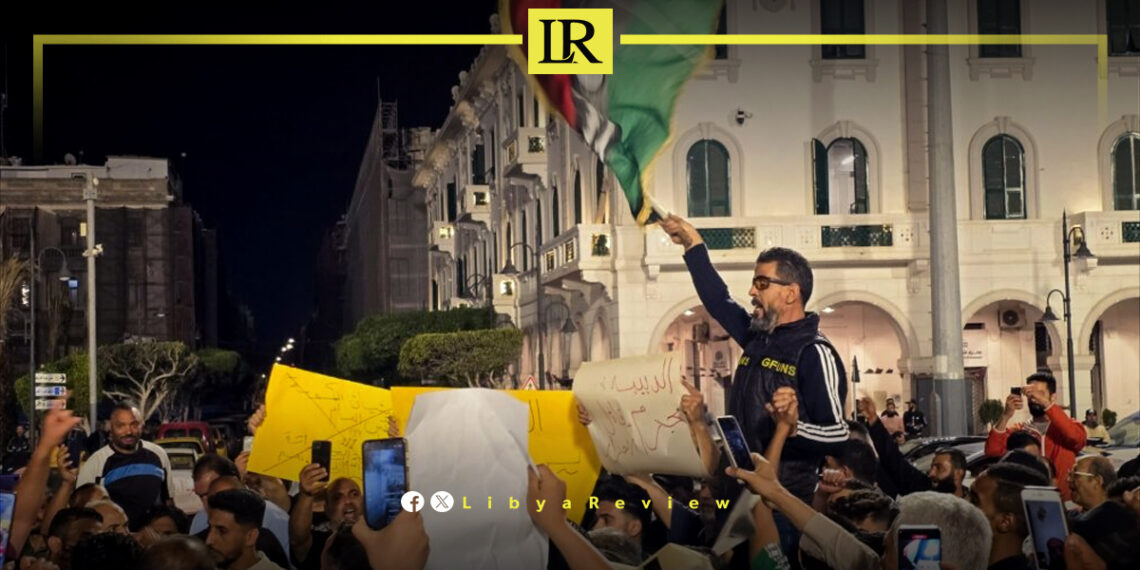Thousands of Libyans took to the streets of Tripoli and cities across western Libya on Friday in one of the most significant public uprisings in years. Demonstrators rallied under the slogan “Friday of Salvation” to demand the immediate resignation of Prime Minister Abdul Hamid Dbaiba and the end of Libya’s prolonged transitional phase.
In Tripoli, large crowds gathered in Martyrs’ Square after Friday prayers, chanting slogans such as “The people want the downfall of the regime.” Many carried placards condemning what they described as widespread corruption and failed leadership under Dbaiba’s Government of National Unity (GNU), which has been in power since early 2021.
The protests soon spread to the headquarters of the United Nations Support Mission in Libya (UNSMIL), where hundreds of demonstrators called on the international community to withdraw its recognition of Dbaiba’s government. Protesters demanded immediate presidential and parliamentary elections, accusing the GNU of deliberately delaying the vote to remain in power.
The unrest extended beyond the capital. Demonstrations erupted in cities including Zawiya, Sabratha, and Surman, where participants echoed the same demands for political change. A particularly notable development occurred in Misrata—Prime Minister Dbaiba’s hometown—where hundreds of residents joined the protests, calling for the formation of a new government and an end to militia violence in the west.
The wave of protests highlights mounting public frustration over Libya’s stalled political process, deepening economic hardships, and growing insecurity in the capital. More than a decade after the fall of Muammar Gaddafi, Libya remains divided between rival political factions, with no elected president or parliament and a deeply fragmented state.
Despite repeated international pledges and local dialogue efforts, national elections have been delayed multiple times. Many Libyans now view Dbaiba’s interim government as an obstacle to progress rather than a pathway to stability.
Friday’s protests reflect a widening rejection of the status quo and signal renewed calls for accountability, political renewal, and an urgent end to transitional governance.


